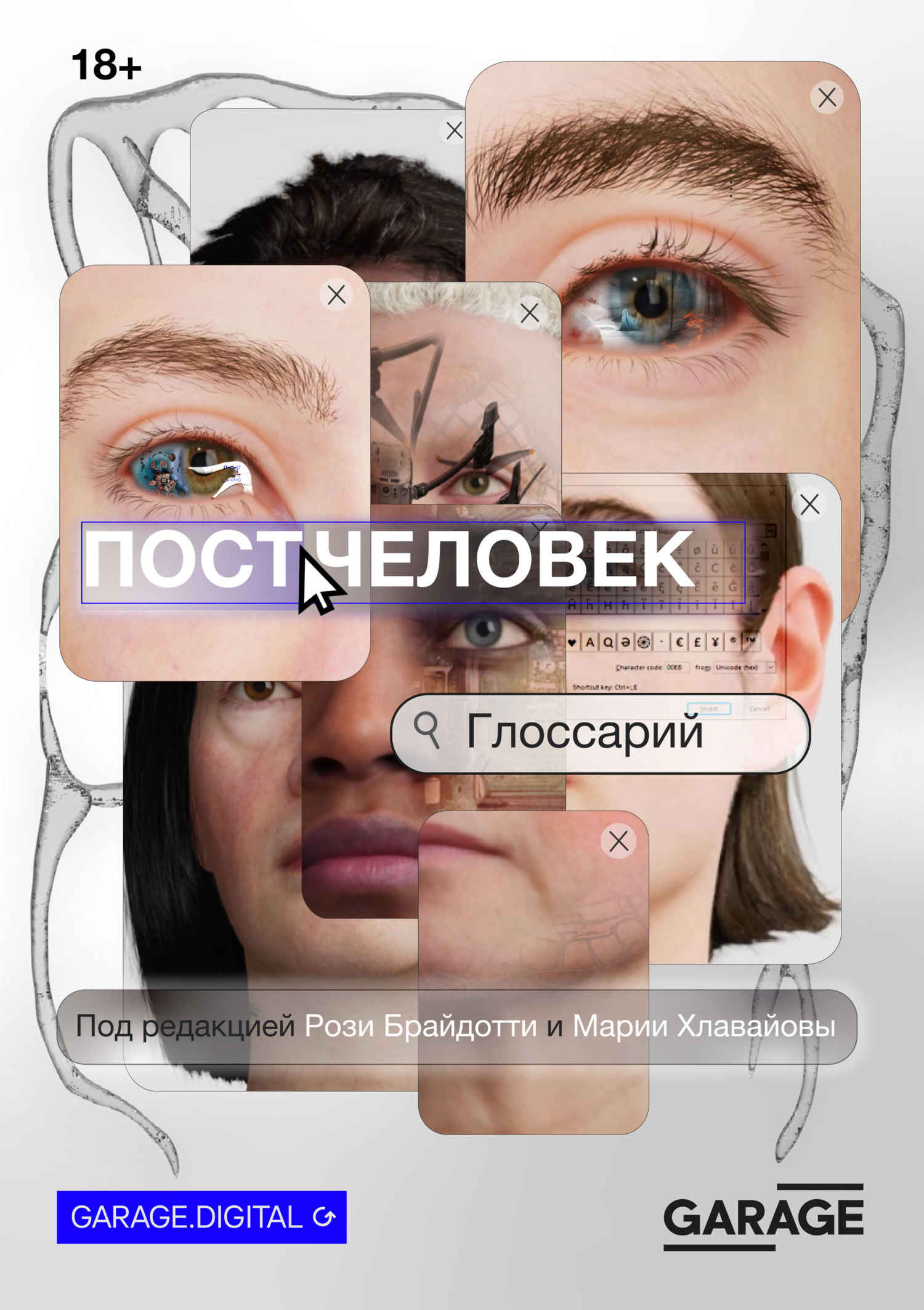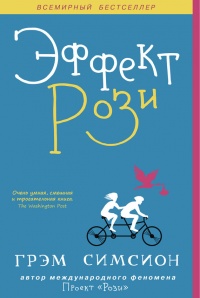Читать книгу - "Постчеловек: глоссарий - Рози Брайдотти"
Аннотация к книге "Постчеловек: глоссарий - Рози Брайдотти", которую можно читать онлайн бесплатно без регистрации
В свете новых вызовов, охватывающих современное общество, концепт человека как таковой, а также проблема его взаимодействия с искусством, точными и гуманитарными науками претерпели существенные изменения. Данный процесс, называемый «постчеловеческим состоянием», подвержен влиянию неолиберальной экономики, глобального капитализма, миграционной политики, технологического прогресса, экологических проблем, борьбы с терроризмом и т. д. «Постчеловек: глоссарий» представляет собой сборник ключевых терминов постчеловечества в контексте современного искусства и интеллектуальной сферы. Он охватывает такие широкие темы, как антропоцен, капиталоцен, экология, цифровой активизм, алгоритмическая культура и нечеловеческое. В глоссарии представлены краткие определения этих понятий и исследуются художественные, интеллектуальные и активистские подходы к решению сложных проблем «постчеловеческого состояния». Сборник помогает разобраться в изменениях, которые произошли в искусстве в контексте современных событий, связывает различные дисциплины, аудитории и критические сообщества. Рози Брайдотти (род. 1954) – философ и теоретик феминизма, ее теоретические работы повлияли на становление постгуманизма. Мария Хлавайова (род. 1971) – куратор и теоретик, основательница и художественный директор пространства BAK (Утрехт).
Haraway, D. (2008), When Species Meet, Minneapolis and London: University of Minnesota Press.
Haraway, D. (2012a) SF, Speculative Fabulation and String Figures, Berlin: Hatje Cantz.
Haraway, D. (2012b), ‘Cosmopolitical Critters: Companion Species, SF, and Staying with the Trouble’, John Coffin Memorial Lecture, English Studies in association with the IES conference ‘Cosmpolitan Animals’, 26–27 October 2012, London, https://www.youtube.com/watch?v=fMIm0SeRRY4#t=27 [accessed 7 February 2017].
Haraway, D. (2013), ‘SF: Science Fiction, Speculative Fabulation, String Figures, So Far’, Ada: A Journal of Gender, New Media, and Technology, 3, http://adanewmedia.org/2013/11/issue3-haraway/ [accessed 4 May 2016].
Haraway, D. (2014), ‘SF: String Figures, Multispecies Muddles, Staying with the Trouble’, public lecture at the University of Alberta, Edmonton, Canada.
Haraway D. (2015a), ‘Anthropocene, Capitalocene, Plantationocene, Chthulucene: Making Kin’, Environmental Humanities, 6: 159–65.
Haraway, D. (2015b) ‘Anthropocene, Capitalocene, Chthulhocene. Donna Haraway in conversation with Martha Kenney’, in H. Davis and E. Turpin (eds), Art in the Anthropocene: Encounters Among Aesthetics, Politics, Environments and Epistemologies, 255–70, London: Open Humanities Press.
Haraway, D. and T. Goodeve (2000), How Like a Leaf, New York: Routledge.
Haraway, D. and N. Lykke (2004), ‘Cyborgs, Coyotes, and Dogs: A Kinship of Feminist Figurations and There are Always More Things Going on Than You Thought! Methodologies as Thinking Technologies’, in D. Haraway, The Haraway Reader, 321–341, New York: Routledge.
Haraway, D. and L. Nakamura, L. (2003), ‘Prospects for a Materialist Informatics: An Interview with Donna Haraway’, Electronic Book Review, 30 August, http://www.electronicbookreview.com/thread/technocapitalism/interview [accessed 1 March 2016].
Haraway, D., N. Ishikawa, S. F. Gilbert, K. Olwig, A. L. Tsing and N. Bubandt (2015), ‘Anthropologists Are Talking – About the Anthropocene’, Ethnos, 81(4): 1–30.
Harding, S. (1986), The Science Question in Feminism, Milton Keynes: Open University Press.
Harding, S. (2004), ‘Introduction: Standpoint Theory as a Site of Political, Philosophic, and Scientific Debate’, in S. Harding (ed.), The Feminist Standpoint Theory Reader: Intellectual and Political Controversies, 1–15, New York: Routledge.
Harding, S. (2008), Sciences from Below: Feminisms, Postcolonialities, and Modernities, Durham, NC: Duke University Press.
Hardt, M. (2007), ‘Foreword: What Affects Are Good For’, in P. Ticineto Clough and J. Halley (eds), The Affective Turn: Theorizing the Social, ix—xiii, Durham, NC: Duke University Press.
Hardt, M. and A. Negri (2004), Multitude: War and Democracy in the Age of Empire, London: Penguin.
Hardt, M. and A. Negri (2009), Commonwealth, Cambridge, MA: Harvard University Press.
Harel, D. and Rosner, R. (1992), Algorithmics, Reading: Addison-Wesley.
Haritaworn, J., A. Kuntsman and S. Posocco (2014), ‘Introduction’, in J. Haritaworn, A. Kuntsman and S. Posocco (eds), Queer Necropolitics, New York: Routledge.
Harman, G. (2009), Prince of Networks: Bruno Latour and Metaphysics, Melbourne: re.press.
Harman, G. (2010a), Towards Speculative Realism: Essays and Lectures, Ropley: Zero Books.
Harney, S. and F. Moten (2013), The Undercommons: Fugitive Planning and Black Study, Wivenhoe, New York and Port Watson: Minor Compositions.
Harrison, R. P. (1992), Forests: The Shadow of Civilization, Chicago: University of Chicago Press.
Hartley, J. (2003), ‘The Frequencies of Public Writing: Tomb, Tome and Time as Technologies of the Public’, in H. Jenkins and T. Thorburn (eds), Democracy and New Media, 247–269, Cambridge, MA: MIT Press.
Harvey, D. (2012), Rebel Cities: From the Right to the City to the Urban Revolution, New York: Verso Books.
Hasson, U., O. Landesman, B. Knappmeyer, I. Vallines, N. Rubin and D. J. Heeger (2008), ‘Neurocinematics: The Neuroscience of Film’, Projections, 2(1): 1–26.
Hauptman, D. and W. Neidich (eds) (2010), Cognitive Architecture: From Bio-politics to Noo-politics, Rotterdam: 010 Publishers.
Hauser, J. (2003), ‘Genes, Geneies, Genes’, in L’Art Biotech Catalogue, Trezelan: Filigranes Editions.
Hawkins, G. (2006), The Ethics of Waste: How We Relate to Rubbish, Sydney: University of New South Wales Press.
Hay, J., S. Hall and L. Grossberg, L. (2013), ‘Interview with Stuart Hall’, Communication and Critical/Cultural Studies, 10(1): 10–33.
Hayles, N. K. (1993), ‘The Materiality of Informatics’, Configurations 1(1): 147–70.
Hayles, N. K. (1997), ‘The Posthuman Body: Inscription and Incorporation in Galatea 2.2 and Snow Crash’, Configurations, 2: 241–66.
Hayles, N. K. (1999), How We Became Posthuman: Virtual Bodies in Cybernetics, Literature, and Informatics, Chicago: University of Chicago Press.
Hayles, N. K. (2002), Writing Machines, Cambridge, MA and London: MIT Press.
Hayles, N. K. (2005), My Mother Was a Computer: Digital Subjects and Literary Texts, Chicago: University of Chicago Press.
Hayles, N. K. (2006), ‘Unfinished Work: From Cyborg to Cognisphere’, Theory, Culture & Society, 23(7–8): 159–66.
Hayles, N. K. (2012), How We Think: Digital Media and Contemporary Technogenesis, Chicago: University of Chicago Press.
Hayles, N. K. (2014), ‘Cognition Everywhere: The Rise of the Cognitive Nonconscious and the Costs of Consciousness’, New Literary History, 45(2): 199–220.
Hays, M. K. (1981), ‘Critical Architecture Between Culture and Form’, Perspecta, 21: 14–29.
Hayward, E. (2010), ‘Spider City Sex’, Women and Performance, 20(3): 225–51.
Hayward, E. and J. Weinstein (2015), ‘Introduction: Tranimalities in the Age of Trans* Life’, TSQ: Transgender Studies Quarterly, 2(2): 195–208.
Heidegger, M. (2012), ‘Positionality’, in Bremen and Freiburg Lectures: Insight Into What Is and Basic Principles of Thinking, 23–43, Bloomington: Indiana University Press.
Heinz, K. (1983), Entwurf einer Philosophie des Wir: Schule des alternativen Denkens, Bochum: Germinal Verlag.
Heise, U. K. (2008), Sense of Place and Sense of Planet: The Environmental Imagination of the Global, Oxford: Oxford University Press.
Heise, U. K. (2011), ‘The Posthuman Turn: Rewriting Species in Recent American Literature’, in С. F. Levander and R. S. Levine (eds), A Companion to American Literary Studies, 454–69, Oxford: Wiley Blackwell.
Hemmings, С. (2011), Why Stories Matter: The Political Grammar of Feminist Theory, Durham, NC and London: Duke University Press.
Henry, M. (2015), ‘Parades, Parties and Pests: Contradictions of Everyday Life in Peacekeeping Economies’, Journal of Intervention and Statebuilding, 1–19.
Herbrechter, S. (2011), ‘Shakespeare Ever After: Posthumanism and Shakespeare’, in A. Hofele and S. Laque (eds),
Humankinds: The Renaissance and Its Anthropologies, 261–78, Berlin and New York: De Gruyter.
Herbrechter, S. (2013), Posthumanism: A Critical Analysis, London: Bloomsbury.
Herbrechter, S. and I. Callus (eds) (2005), Cy-Borges: Memories of the Posthuman in the Work of Jorge Luis Borges, Lewisburg: Bucknell University
Прочитали книгу? Предлагаем вам поделится своим впечатлением! Ваш отзыв будет полезен читателям, которые еще только собираются познакомиться с произведением.
Оставить комментарий
-
 Илья12 январь 15:30
Книга прекрасная особенно потому что Ее дали в полном виде а не в отрывке
Горький пепел - Ирина Котова
Илья12 январь 15:30
Книга прекрасная особенно потому что Ее дали в полном виде а не в отрывке
Горький пепел - Ирина Котова
-
 Гость Алексей04 январь 19:45
По фрагменту нечего комментировать.
Бригадный генерал. Плацдарм для одиночки - Макс Глебов
Гость Алексей04 январь 19:45
По фрагменту нечего комментировать.
Бригадный генерал. Плацдарм для одиночки - Макс Глебов
-
 Гость галина01 январь 18:22
Очень интересная книга. Читаю с удовольствием, не отрываясь. Спасибо! А где продолжение? Интересно же знать, а что дальше?
Чужой мир 3. Игры с хищниками - Альбер Торш
Гость галина01 январь 18:22
Очень интересная книга. Читаю с удовольствием, не отрываясь. Спасибо! А где продолжение? Интересно же знать, а что дальше?
Чужой мир 3. Игры с хищниками - Альбер Торш
-
 Олена кам22 декабрь 06:54
Слушаю по порядку эту серию книг про Дашу Васильеву. Мне очень нравится. Но вот уже третий день захожу, нажимаю на треугольник и ничего не происходит. Не включается
Донцова Дарья - Дантисты тоже плачут
Олена кам22 декабрь 06:54
Слушаю по порядку эту серию книг про Дашу Васильеву. Мне очень нравится. Но вот уже третий день захожу, нажимаю на треугольник и ничего не происходит. Не включается
Донцова Дарья - Дантисты тоже плачут





